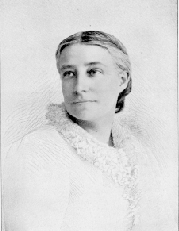A Quote by Rumi
Your eyelashes will write on my heart the poem that could never come from the pen of a poet.
Related Quotes
A true poet is more than just a man who can write a poem with a pen. A true poet writes poetry with his very life. A true poet doesn't use poetic devices to con the heart of a woman but uses the beauty of all that is poetic to serve, cherish, and express love to the heart of a woman. Just as a true warrior is not a conqueror of femininity but a protector of femininity, a true poet is not just a wooer of a woman's heart but one who knows how to nurture and plant love in a woman's heart. Simply put, a true poet is a man who knows how to be intimate with a lover - first and foremost with Christ.
Write, if you must; not otherwise. Do not write, if you can earn a fair living at teaching or dressmaking, at electricity or hod-carrying. Make shoes, weed cabbages, survey land, keep house, make ice-cream, sell cake, climb a telephone pole. Nay, be a lightning-rod peddler or a book agent, before you set your heart upon it that you shall write for a living.... Living? It is more likely to be dying by your pen; despairing by your pen; burying hope and heart and youth and courage in your ink-stand.
A successful poem says what a poet wants to say, and more, with particular finality. The remarks he makes about his poems are incidental when the poem is good, or embarrassing or absurd when it is bad and he is not permitted to say how the good poem is good, and may never know how the bad poem is bad. It is better to write about other people's poetry.
There is this tendency to think that if you could only find the magic way, then you could become a poet. "Tell me how to become a poet. Tell me what to do." . . . What makes you a poet is a gift for language, an ability to see into the heart of things, and an ability to deal with important unconscious material. When all these things come together, you're a poet. But there isn't one little gimmick that makes you a poet. There isn't any formula for it.
Lucky accidents seldom happen to writers who don't work. You will find that you may rewrite and rewrite a poem and it never seems quite right. Then a much better poem may come rather fast and you wonder why you bothered with all that work on the earlier poem. Actually, the hard work you do on one poem is put in on all poems. The hard work on the first poem is responsible for the sudden ease of the second. If you just sit around waiting for the easy ones, nothing will come. Get to work.
You will write if you will write without thinking of the result in terms of a result, but think of the writing in terms of discovery, which is to say that creation must take place between the pen and the paper, not before in a thought or afterwards in a recasting... It will come if it is there and if you will let it come.
Write it on your forehead, write it on your heart, on your third chakra, on your second chakra and your first chakra. You will never go short, never will you have less. God will prevail by God's True Nature. If you have discomfort and hunger say, "God, that is Thy Virtue. Thank you for accepting me for that tragedy." This is the attitude of gratitude. "My shackles will be removed by Thy Will." God is so great, to Him the whole of what we have is just like a sesame seed.







































